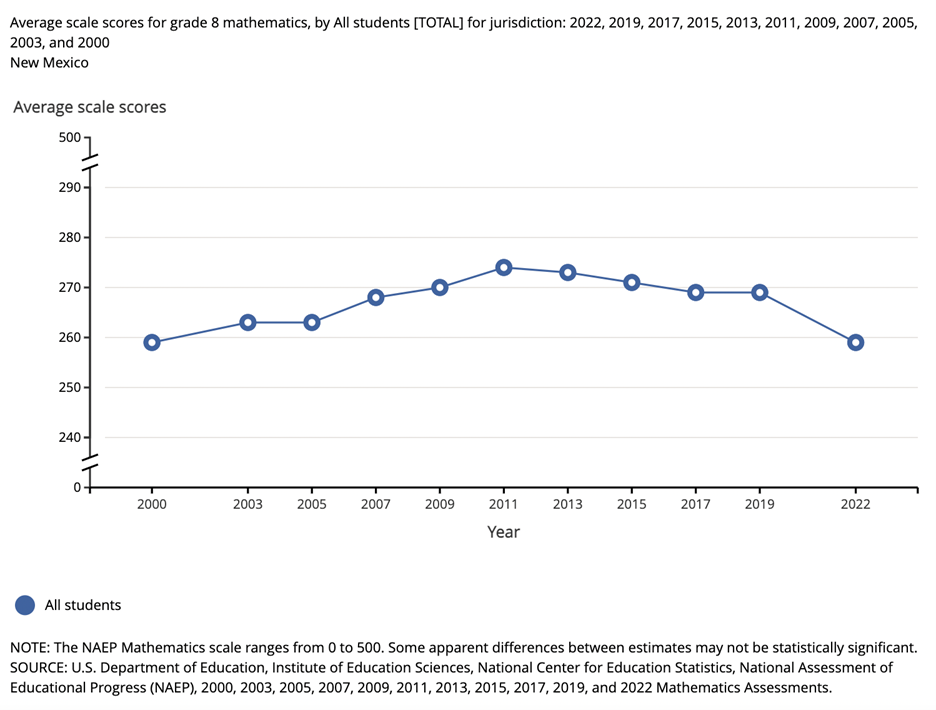Math performance among New Mexico’s 8th graders has fallen 15 points in the last decade, grounding scores to a two-decade low.
Yet, despite the alarming state of learning, New Mexico leaders appear to be walking back an accountability system that was originally touted by a panel of independent, national experts as one of the best in the country. Indeed, New Mexico’s K-12 accountability system has been celebrated for homing in on low-performing schools and maximizing resources for struggling students. As state leaders eye a return to the drawing board, advocates in the state are asking, “Why now?”
In 2017, the Collaborative for Student Success, in partnership with Bellwether Education, convened a panel of bipartisan, ideologically diverse experts from more than 45 education policy organizations to read and review each state’s plan under the Every Student Succeeds Act (ESSA). I led that process from the Bellwether side, and the peer reviewers lauded a number of strong elements in New Mexico’s plan.
State ESSA plans are long, complicated documents, and we do not have the benefit of a panel of national experts monitoring and evaluating how they are changing over time, but New Mexico has stepped away from its original plan, including many of its most praiseworthy elements. Those include:
- Dropping an indicator that specifically focused on the growth rates of the bottom 25% of students, which was a nudge for schools to pay close attention to the lowest-performing students;
- Capping the number of schools with low-performing subgroups of students that receive extra support at just 5% of schools, meaning a student group could be performing at the 6th percentile statewide and still not get any extra help;
- Allowing schools to exit from support status once their performance has risen to just the 6th percentile statewide, which a school could attain by being slightly-less-bad than others in the state; and
- No longer taking the “Direct Student Services” set-aside, a pot of money dedicated toward funding things like tutoring, advanced courses, or CTE courses for Direct Student Services. (This one is particularly shortsighted as the last of the federal relief funds expire and New Mexico is attempting to add other state funds to expand tutoring programs.)
This all feels part and parcel of the political shift away from school accountability efforts, as Paul Peterson recently noted in Education Next. And indeed, New Mexico previously got rid of its A-F school rating system back in 2019.
But ironically, the need for school accountability has never been greater. At the national level, students, especially Black, Hispanic, and low-income students, remain well behind their pre-COVID performance levels. As mentioned above, New Mexico is no exception to these trends.

Moreover, the evidence behind strong accountability systems has only grown stronger in recent years. In a project this year for The 74, I showed that achievement gaps started widening around the same time that states started easing up on school accountability pressures. And new research last year found that the introduction of a school accountability system in South Carolina had raised student achievement, reduced students’ reliance on social welfare programs, and that these effects persisted well into adulthood.
In other words, even as education leaders have become less enchanted with it over time, the case for school accountability systems remains strong.

